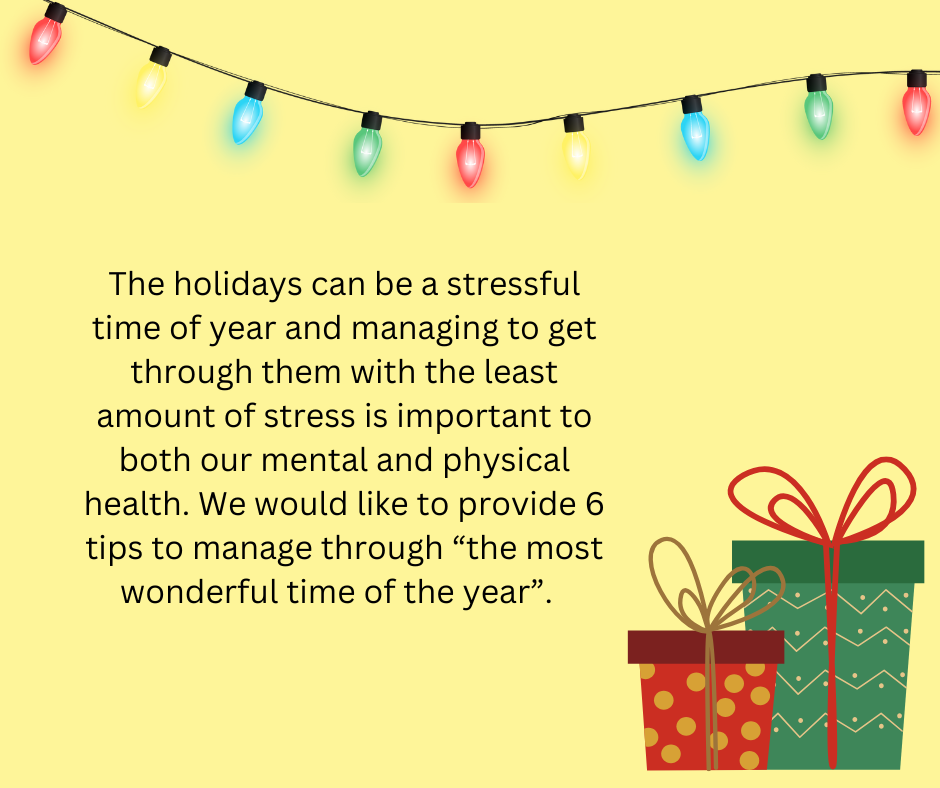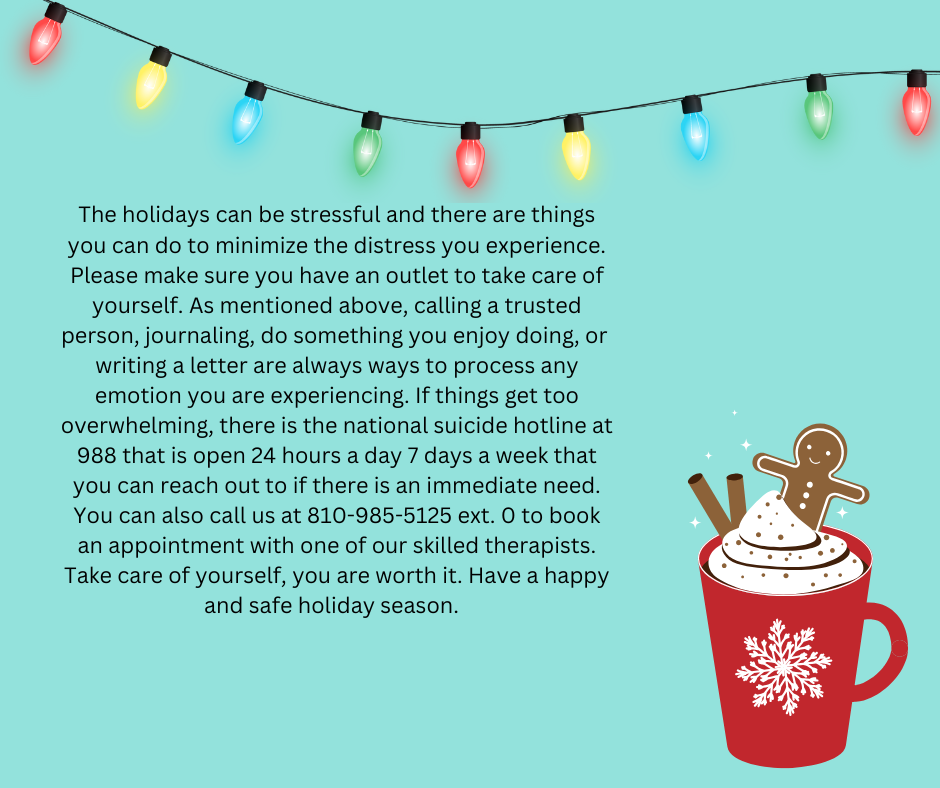Managing Holiday Stress
Managing Holiday Stress
by Shannon McKeever

1. Plan ahead
This time of year brings a busy season of socialization for many of us. Feeling the need to attend family, social, religious and school events is a common pressure at this time of year. One thing you can do is plan ahead to lessen the stress of going to these events, leave early, not plan too many events in one day, and even making sure the car is gassed up can relieve some of the pressure of the different obligations you may have. Checking the weather ahead of time can also prevent stress from an uncontrollable situation.
2. Know your limits
Of course, people want to bring a dish to events or buy presents for the entire family. Knowing your limits and making sure you do not overextend yourself mentally, physically or financially is important. It’s ok if you buy the cookies you are bringing. It’s ok if you are not able to buy for all 10 nieces and nephews. Maybe discussing this ahead of time and picking names is best for all people involved. Giving yourself permission to not be the Hallmark movie version of yourself can go a long way this time of year.
3. Self-care
With so many things happening around us, we often forget to take care of ourselves. This is true throughout the year, but especially during the holidays. Dialectical Behavioral Therapy teaches a set of skills that help you manage your emotions. PLEASE is an acronym for treating physical illness, eating a balanced diet, avoiding mood altering substances, sleep so you feel refreshed in the morning, and lastly making sure you get daily exercise. Doing these things can allow you to approach any situation from a less emotional space. When you do not care for yourself, you can get emotionally dysregulated creating you to approach a more stressful experience already distressed. I talk to people about our battery of tolerance. Nobody wants to leave the house with our phones at 10% and no charger, why would we do that with our emotional battery?
4. Set boundaries
Making sure not only you know your limits but making sure the people around you also do is important. Boundaries are important for our loved ones to understand what we can and cannot do. Asking for help when needed, delegating what you can, or even saying no to a request is ok to do. We often believe that we need to accept all the requests and see them through to the end and we can’t possibly do it all. There are others that can help, and if not, a task can simply be modified or not done.
5. Honoring those who are no longer with us
During the holidays, we can miss those who have passed and all the ways they have made our lives special. Making sure we honor them with a favorite dish or sharing stories is important to our healing process. We often try to avoid the emotions that coincide with the healing process, but that does not benefit anyone. It’s ok to miss someone and to feel the emotions with it. It is “normal” to miss someone during the holidays, make sure you recognize it, your emotions are valid and ok to experience.
6. Notice your feelings
During the holidays many emotions can be present. You can see a family member whom you have had conflict with, feel sad that someone is not able to attend an event, feel overwhelmed with the number of people somewhere or even have to make a choice to see someone that you have a negative past with. Any emotion that comes up is valid. We feel the emotions we experience for a reason. Acknowledge them when they occur and talking to a trusted person can help. People identify some emotions as negative and try to suppress them, that can lead to other complications. They can come out with people that are not even associated with the emotion you have, or it can even come out in our physical health. Make sure you talk to a trusted person, journal, do something you enjoy, or even write a letter (you do not need to send it) to allow the release of anything that is affecting you in a distressful way.

